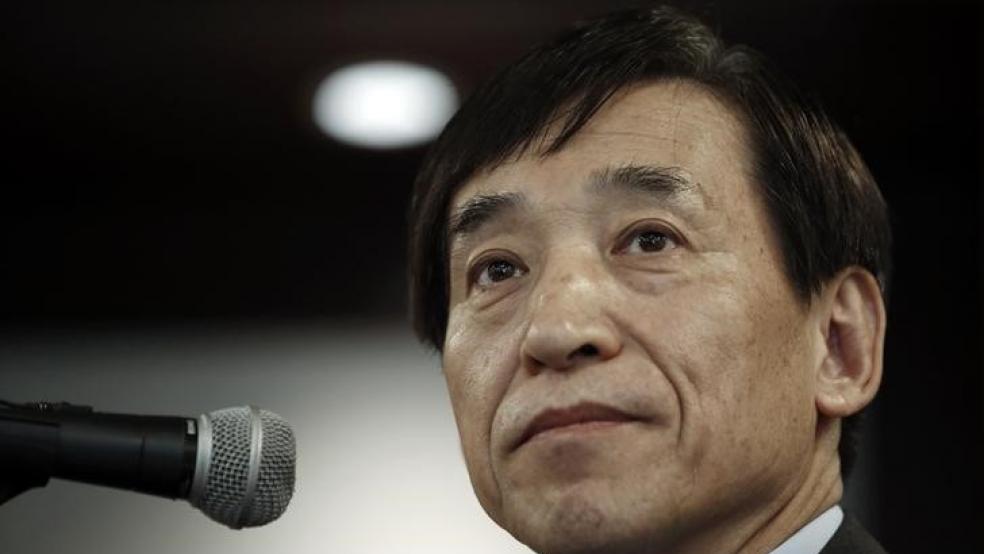The governor's comments followed a day after Finance Minister Yoo Il-ho said in a television interview that policymakers were contemplating the best strategy to support two state-run policy banks involved in a massive overhaul of South Korea's shipping and shipbuilding industries.
"We should be extremely wary of the possibility of any temporary effects like negative influences on financial markets or a worsening of corporate liquidity," Bank of Korea Governor Lee Ju-yeol told his top officials before leaving for the annual meeting of the Asian Development Bank. Lee added corporate structural reform was "very important" for Asia's fourth-largest economy.South Korean President Park Geun-hye has said allowing the Bank of Korea to undertake some form of quantitative easing should be considered to ensure credit goes where it is needed during the structural reform process.Park has said the quantitative easing mix being considered was not of the kind that has been seen in advanced economies such as the U.S., Japan or the European Union."We are thinking of a mix of fiscal and monetary policy rather than just one," Yoo said on Sunday.When asked whether quantitative easing being undertaken by the central bank was possible, Yoo added that it too was a candidate for inclusion in the policy mix.Last Friday, the central bank's labor union criticized calls for quantitative easing, saying it could harm the central bank's independence and the union would protest against it for as long as possible. "What the government is calling for is not quantitative easing. They are crying out wine and selling vinegar," the union said in a statement.A task force of officials from the government, central bank and other related bodies, will hold its first meeting later this week - chaired by the first vice finance minister. (Reporting by Christine Kim; Editing by Kim Coghill and Eric Meijer)BOK Governor backs structural reform, sidesteps quantitative easing

Kim Hong-Ji



